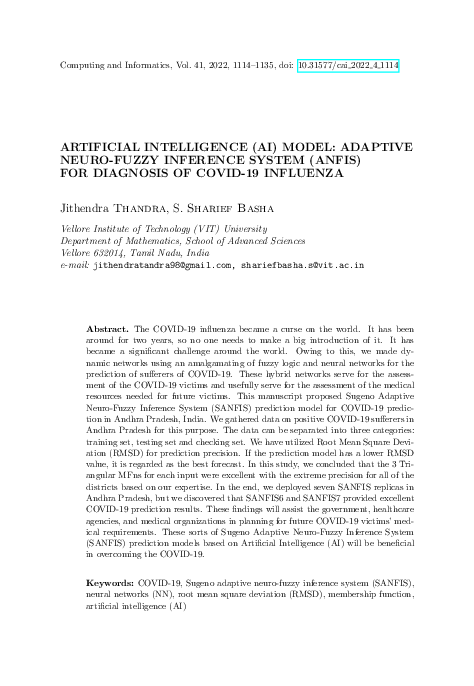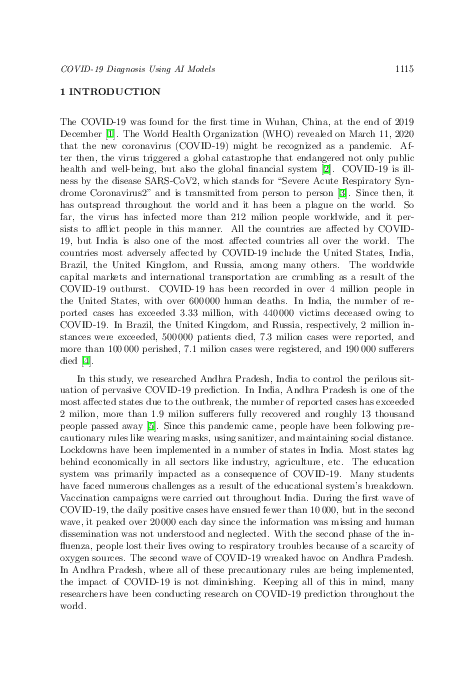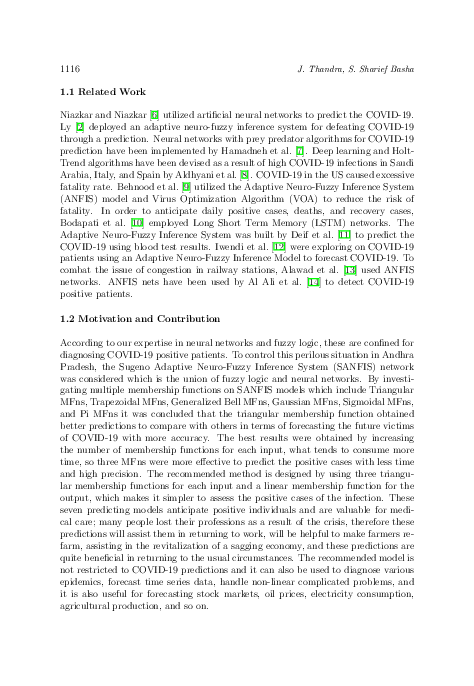Artificial Intelligence (AI) Model: Adaptive Neuro-Fuzzy Inference System (ANFIS) for Diagnosis of COVID-19 Influenza
keywords: COVID-19, Sugeno adaptive neuro-fuzzy inference system (SANFIS), neural networks (NN), root mean square deviation (RMSD), membership function, artificial intelligence (AI)
The COVID-19 influenza became a curse on the world. It has been around for two years, so no one needs to make a big introduction of it. It has became a significant challenge around the world. Owing to this, we made dynamic networks using an amalgamating of fuzzy logic and neural networks for the prediction of sufferers of COVID-19. These hybrid networks serve for the assessment of the COVID-19 victims and usefully serve for the assessment of the medical resources needed for future victims. This manuscript proposed Sugeno Adaptive Neuro-Fuzzy Inference System (SANFIS) prediction model for COVID-19 prediction in Andhra Pradesh, India. We gathered data on positive COVID-19 sufferers in Andhra Pradesh for this purpose. The data can be separated into three categories: training set, testing set and checking set. We have utilized Root Mean Square Deviation (RMSD) for prediction precision. If the prediction model has a lower RMSD value, it is regarded as the best forecast. In this study, we concluded that the 3 Triangular MFns for each input were excellent with the extreme precision for all of the districts based on our expertise. In the end, we deployed seven SANFIS replicas in Andhra Pradesh, but we discovered that SANFIS6 and SANFIS7 provided excellent COVID-19 prediction results. These findings will assist the government, healthcare agencies, and medical organizations in planning for future COVID-19 victims' medical requirements. These sorts of Sugeno Adaptive Neuro-Fuzzy Inference System (SANFIS) prediction models based on Artificial Intelligence (AI) will be beneficial in overcoming the COVID-19.
reference: Vol. 41, 2022, No. 4, pp. 1114–1135


